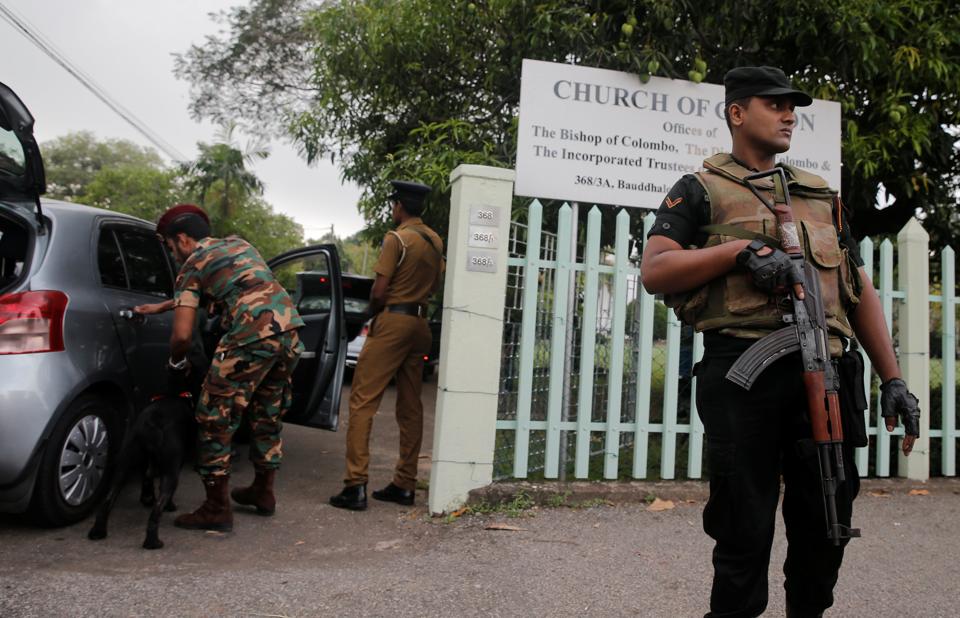On Saturday, the military official said that Fifteen people including six children have died during a Sri Lankan security forces operation in the aftermath of the Easter attacks, as three-cornered suicide bombers blew themselves up and others were shot dead
The shootout between troops and suspected Islamist militants erupted on Friday evening in Sainthamaruthu in Ampara, to the south of the town of Batticaloa, site of one of the Easter Sunday blasts at three churches and four luxury hotels.
The three men set off explosives, also killing three women and six children inside what was believed to a jihadist safe house near the eastern town of Kalmunai on Friday night.
“Three other men, also believed to be suicide bombers, were found dead outside the house,” the military spokesperson said in a statement, adding that they had been shot.
Police backed by troops exchanged fire with those inside the house for over an hour, a military official said, adding that the bodies were recovered early Saturday following a search operation.
Military spokesman Sumith Atapattu said in a statement that as troops headed towards the safe house, then three explosions were triggered and gunfire began. He further added, “Troops retaliated and raided the safe house where a large cache of explosives had been stored.” He said the militants were suspected members of the National Towheed Jama’at (NTJ), which has been blamed for last Sunday’s attacks.
Security forces have stepped up their searches for extremists after the ISIS group claimed responsibility for the suicide attacks on three churches and three luxury hotels, which killed least 253 people and wounded hundreds more.
The joint operation between the police and the army was carried out following a tip-off that those responsible were holed up in a built-up area of Kalmunai, 370 kilometres (230 miles) east of the capital.
There were no casualties reported among the security forces.
The government has admitted major intelligence lapses, although Prime Minister Ranil Wickremesinghe said he was unaware of any warnings ahead of the attacks, in a sign of the rift between him and President Maithripala Sirisena.
“If we had any inkling, and we had not taken action, I would have handed in my resignation immediately,” he told the BBC. “But what do you do when you are out of the loop?”
Wickremesinghe tried to sack Sirisena last year and experts believe the feud could have played a part in Sri Lanka’s failure to act on intelligence warnings given weeks before the attacks.
Police said on Friday they were trying to track down 140 people they believe have links with Islamic State, which claimed responsibility for the suicide bombings. They have detained at least 76 people, including foreigners from Syria and Egypt, in their investigations so far.
The extremist group released a video on Tuesday showing eight men, all but one with their faces covered, standing under a black Islamic State flag and declaring their loyalty to its leader, Abu Bakr Al-Baghdadi. The head of a local extremist group, Zahran Hashim, who appeared in the video, was killed at one of the Colombo hotels targeted, the Shangri-La. He was accompanied by a second bomber identified as Ilham Ibrahim.
As Several nations including US, Israel, Australia, and Britain have already warned their citizens against visiting Sri Lanka in the wake of the attacks, the Finance Minister Mangala Samaraweera said that the island, which depends on tourism as a cornerstone of its economy, could take up to two years to fully recover.


Leave a Reply